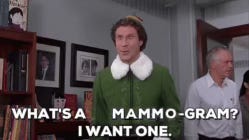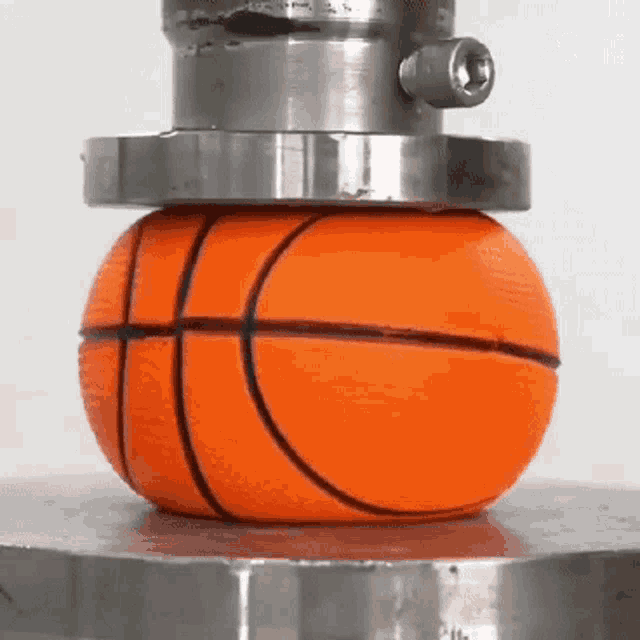I recently had my annual mammogram. I like to schedule it this time of year because it feels extra festive and fun, like a telegram or Christmas-gram.
I passed through the seven levels of the candy cane forest, through the sea of swirly-twirly gum drops, and then I walked through the hospital doors.
I feel very weird when I enter hospitals, especially as a healthy person taking voluntary preventative measures vs those who are there by force. Dropping by, whistling along like a clueless healthy idiot, while the suffering taking place right near me in my blind spots shifts around to my central vision.
There’s this sheet of emotion I walk through like a waterfall as I enter in through the automatic doors. I approach with aims to check off a task and and enter, immediately struck by an admonishment to forget my discomfort and remember the truly wounded. I try to hold space for them and maintain some reverence while I’m there, knowing I’ll likely join them at some point, in some way.
This was an evening appointment which was weird but kind of better. The only people in the mammo office were me and two nurses/techs. In case you didn’t know, let me tell you what a mammogram is like. I wish I could say someone sang to me while it all happened but, alas. No.
Wearing a front-opening hospital robe, you stand facing a giant and complicated copy machine. Becoming suddenly and quite intimately acquainted, you take out a boob and lean in real close in a strange embrace to make your copy except what also happens is something like this:
Julian is always sending me clips of hydraulic steel press machines, endlessly entertained by what happens when they smash this or that.
Back to my boobs though. I have been doing this for several years now. I know I have dense breast tissue which can make this a painful experience and I should have told the tech to please ease it down but I did not. Down came the scary press. Down, down, down, not stopping, and I shouted out in pain and didn’t really stop. I think my exact words were “Ai-ai-ai-ai-ai aaahh-OW”
She stopped the machine and said, “Ohhh does it hurt? I think you may have moved,” whereupon she adjusted the machine, lowered it not quite as far, and then hand-cranked it the rest of the way which was better. In these hydraulic press videos Julian sends, things usually fly out, just completely obliterated, and I admit I had visions of this as I stood there because I also may have told the tech,
“I feel like it’s going to pop.”
She laughed pityingly and said, “No.” Obviously I know it wouldn’t actually pop. Probably. Just like that basketball up there. Little comfort.
When I came home and recounted the tale to Sean, I pondered,
“It’s interesting how quick she was to blame me. ‘You must have moved. It was you.’ Like I did it wrong. Which I contest—I moved because it hurt!”
But does it even matter? Maybe I didn’t do it right. I don’t do this every day. The fact was I was subject to her, she controlled the machine, and I was in pain. But in that moment, I cared much more about finding relief than holding anything against her.
But I have a lifetime of not constant but fairly regular occurrences such as this:
In the dentist’s chair as a child, being told it didn’t hurt that bad as I felt tears drip down the side of my face.
In the doctor’s office when I was in my 20’s, having been probed by a slim camera to scope out my cervix and uterus and, upon the withdrawal, was suddenly overcome with sudden pain and nausea, coming very close to blacking out as the doctor lamely sat in a chair to the side muttering useless explanations (“I’ve read reactions like this can happen sometimes…”) that I could hardly hear while the nurse stood near, me as I reached out into the dark, and let me hold onto her.
A few years later in the initial stages of preparing to give birth, when the doctor checking my cervical dilation caused me intense pain and I told him it hurt me and that I did not want him to do it again. Then when he assured me he wouldn’t and then did it anyway, bringing the pain I knew would come, from my reclined position, I roundhouse-style kicked at him and shouted, “GET OUT.” Rather than own up to it and stay with me, he bolted and we never saw that doctor again. Enter the gentle midwife whose calming manner and presence took much better care of me.
Taking medication ten+ years later and, after telling the NP the negative effects I was experiencing, she expressed doubt at first saying, “That’s not normal. Most people are fine with it.” Which means what, exactly. It feels like a roundabout way of telling me I must be doing it wrong or that my experience of it was. But I don’t know. I told her my decision to stop taking it, as the effects were a deal-breaker for me, and she accepted it but remained doubtful.
These experiences were unpleasant but I think I can see it from the point of view of these medical professionals too. I understand that when things go wrong or differently from what we expect or judge to be acceptable, standard, or correct, it can be very unsettling, even cause deep fear, a dissonance and discomfort that threatens what we thought we knew about ourselves or our worldview. And in attempt to preserve our perceptions, to fight off the threat, we deny our possible culpability, step outside of the situation and maybe rush to pinpoint as to why or how the injured caused the injury. It just can’t be me so it must be you.
Injury will happen. It is sometimes preventable and sometimes it is not. I wonder how much time we spend on admonishing the wounded vs treating the wound. I’m reminded of a friend whose daughter was in an accident and injured so severely, she had to attend a special hospital for several months. She marveled at the way no one there was interested in how patients got there but only in what they could do help them heal. I think of the hospital that I walked into, located very near to where I live and wondered at the patients compelled to healing.
I’m learning there are a lot of potential obstacles to that healing, that wounds can run very deep, and we are reckless with each other, and ourselves. I am learning that it can be more difficult to bear the thought that we might be capable of hurting someone than it is to actually hurt someone. Or witness someone hurting and then stay to treat them.
We hate failing those we are meant to take care of. I know this feeling. It’s the worst. But I hope to be able to see beyond myself to the hurt taking place before me, like the technician did. She didn’t intend to cause injury but that didn’t prevent injury. And I know she was defending herself for emotional and probably legal reasons, and gave an instinctive reaction. Her words were a reflex but she rushed to my aid and made it better. She believed me when I said it hurt, pivoted, and adjusted the machinery to make a more tender approach and that was the grace I needed to get me through. I don’t blame her. I don’t even blame my dense boobs. I love them. They’re a part of me and I’m trying to take care of them.
I read somewhere that people do the best with the capacity they have. I am trying to expand my own and, as I am given grace, offer grace in return. I will do better to keep my eyes open, to widen my scope to really see the afflicted, and take responsibility for my possible complicity, the denial of which might prevent me from really being with the people I’m with.
At the end of the appointment, the technician and I shared pleasantries and, clutching myself, I wished her a Merry Christmas as I exited the room.






Very thought provoking. Thank you.
loved this so much! feel dense tissue lady and had 2 mammograms last year for lumps. it was horrible but they were kind. i just kept thinking, there's gotta be a better way. if a woman had invented this machine, it wouldn't cause pain.